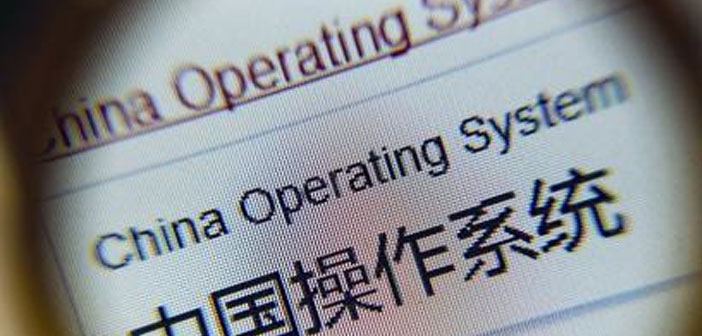China is planning to launch its own operating system with the goal, this at least as declared by the government of the country, to make their information systems more secure. As reported by Xinhua news the new operating system could be launched as early as October, at least according to statements by Guangnag Ni, professor at the Chinese Academy of Engineering and formerly CTO of Lenovo.
Further details regarding underpinning operating system are not yet known, but the move seems to have been stimulated by the end of support for Windows XP and the prohibition of Windows 8 in China. The government has also launched an anti-monopoly case against Microsoft earlier this year. According to available information, the operating system will be made available first for desktop systems and later also for mobile devices. ” The key to our success lies in a quiet allowing that can help us compete with Google, Apple and Microsoft, ” said Ni.
It is not the first action that China’s efforts to loosen its ties with the Western operating systems in favor of locally developed solutions that could be more easily protected skirmishes before the growing forces of international digital intelligence. About a decade ago, China had initiated the development of Kylin, an operating system based on FreeBSD, and just last year it was announced that Ubuntu Kylin as you can imagine was supposed to represent the second stage in the development of Kylin.
Even further back, in 2003, a consortium of Asian countries that saw over China as well as Japan and South Korea, announced their intention to develop an operating system ” Asia-centric ” Linux-based. The project, which he later also included Vietnam, Thailand and Sri Lanka, has been named Asianux.
More recently, in 2012 the DRDO (Defense Research and Develompment Organization) of India has announced the development of India Operating System. ” To protect our network our operating system is essential, ” he said then VK Saraswat, Director General of DRDO.
The various projects mentioned are stationary or in a stage of gestation, or have been quashed or even have seen a low popularity, but they are all indicators of a clear trend: the Asia wants to control the destiny of their operating systems, especially in the aftermath of the events related to the revelations made public on the work of the NSA by Edward Snowden.
Whether and how this new initiative of the Chinese government will go to the port will remain to be seen, meanwhile, according to recent polls 70% of PC users in China are still using Windows XP.

